Grace Scully
Natura Imperium
This project looks at the history of botanical exploration and the impact this still has today. My research involved looking at the introduction of invasive plant species by wealthy landowners, in the eighteenth and nineteenth century, and how this has left a colonial marker on the land itself. The collecting of plant specimens by colonial powers often had intentions of expanding scientific understanding of the world, exploring the medicinal uses of plants, as well as a simple appreciation of nature. These explorations coincided with expansionist ambitions of imperialist countries, where indigenous people were being exploited, resources pillaged, and communities destroyed. Thus, the collection of botanical specimens can also be understood as a means of control; gaining an understanding of the natural world often with the intention of controlling those environments. The history of botanical exploration therefore cannot be separated from the history of colonial exploitation. Some of the effects of this colonialist mentality have resulted in people becoming alienated from the natural environment around them, and has fascilitated the conditions for climate change and ecological disasters.
In this series I have used the modus operandi of botanist and naturalist notebooks, such as the handwritten names of plants, pressing the flowers to preserve them, and the collecting of seeds. The triptych photographs include a portrait in the centre with the subject holding different native plants which are obscuring the face. On either side is a photograph of their hands holding the same plant, ranging from a protective to a destructive hold. The use of a plain backdrop to decontextualise the subject from their environment is applied. These same flowers were then dried and pressed, in a historical botanist manner, and photographed against a white background. Handwritten text outlines the different names of each plant. Piles of seeds and their remaining residue comprise the other images.
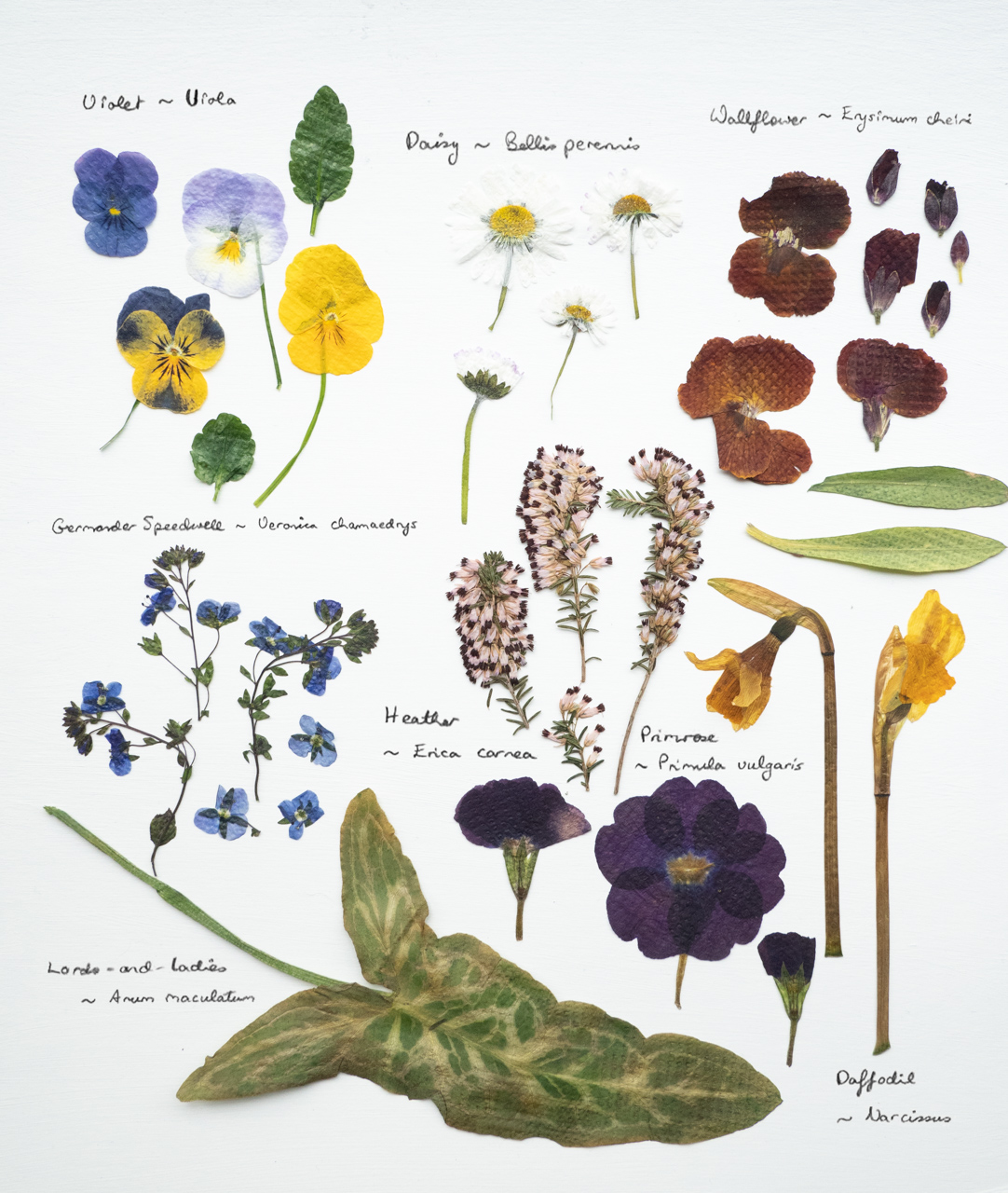
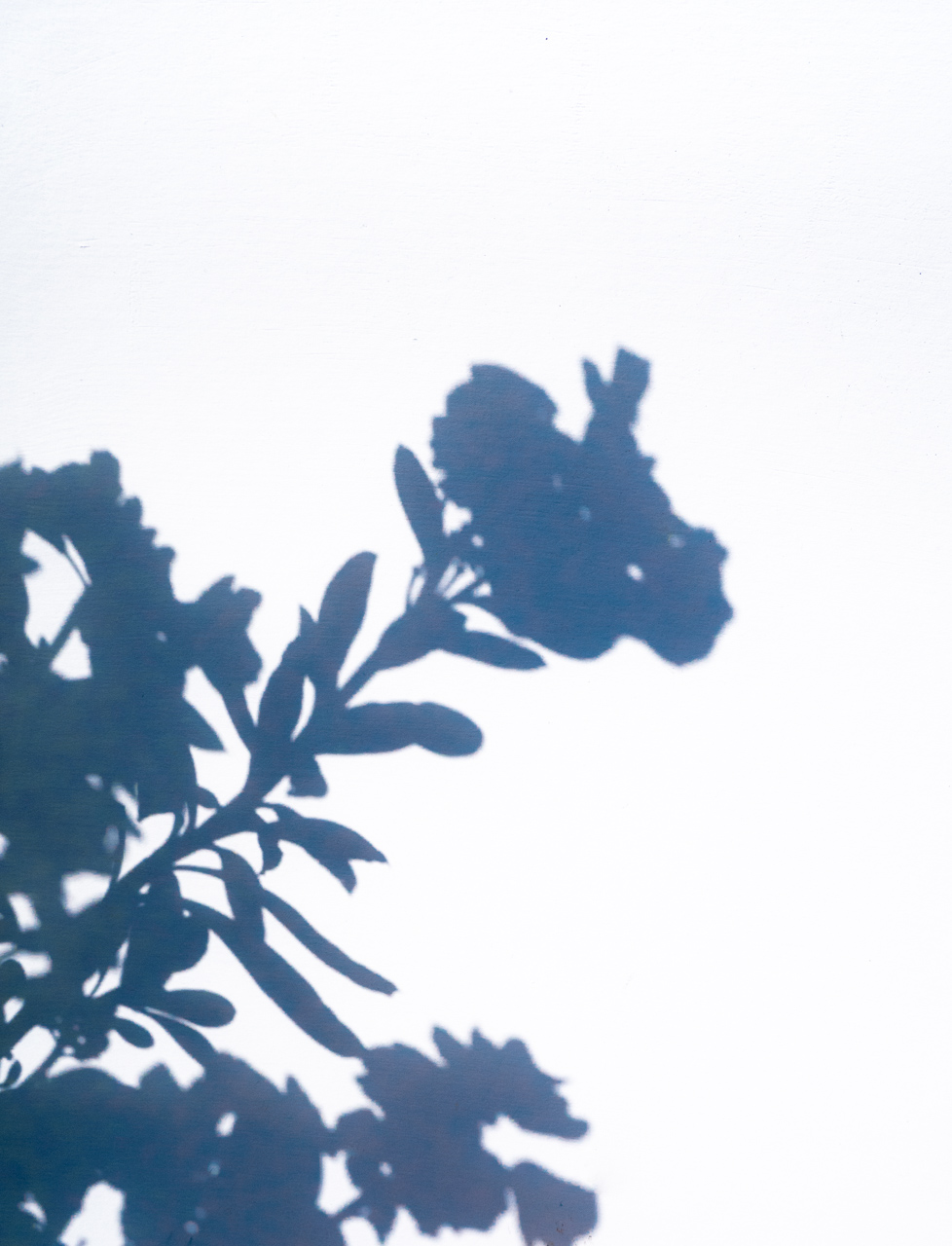
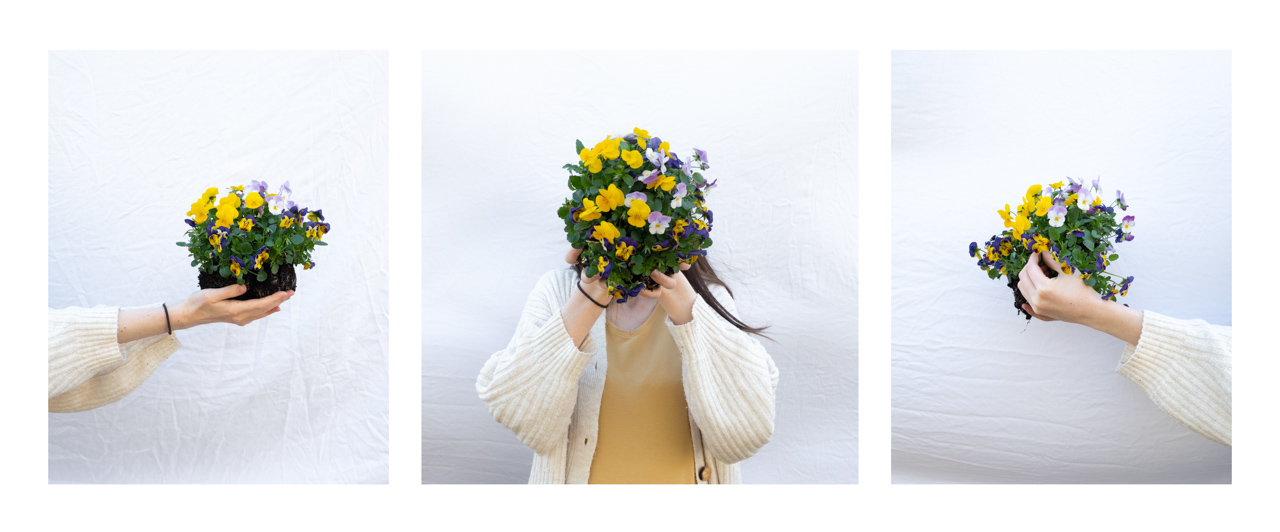
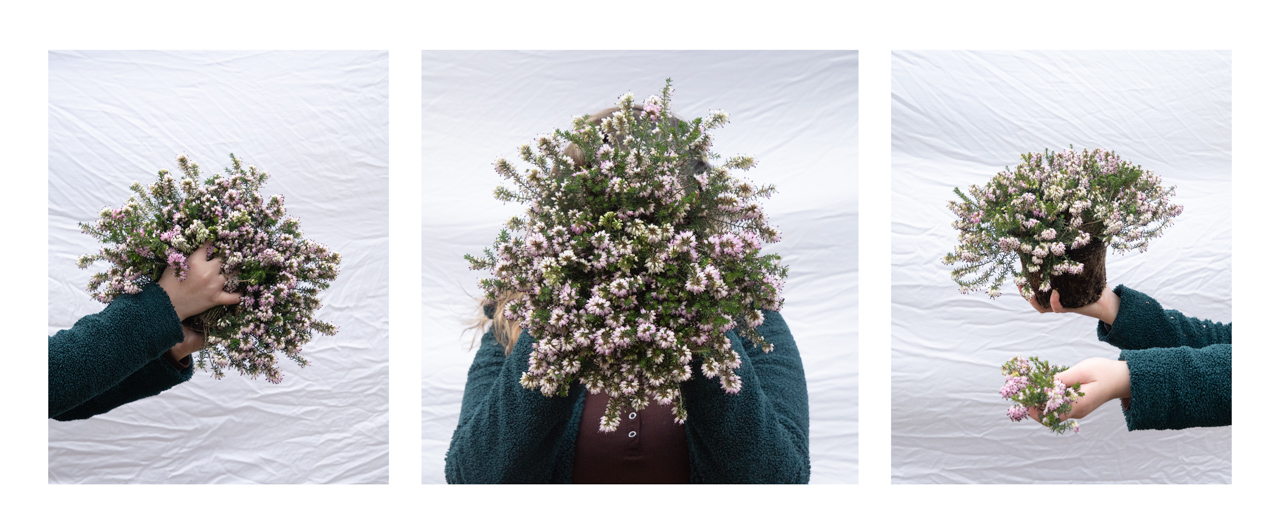
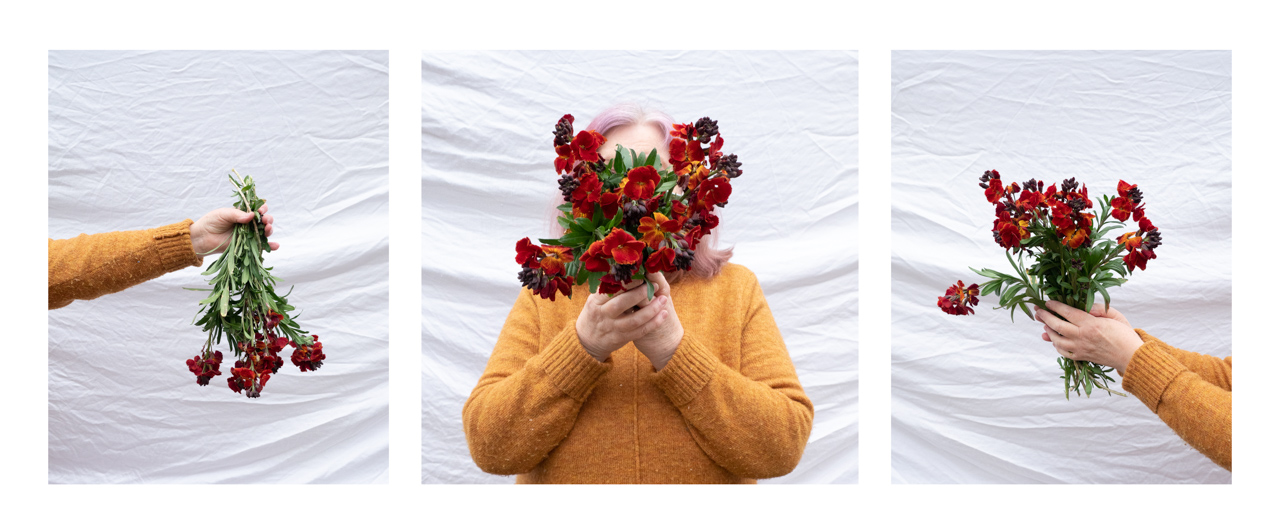
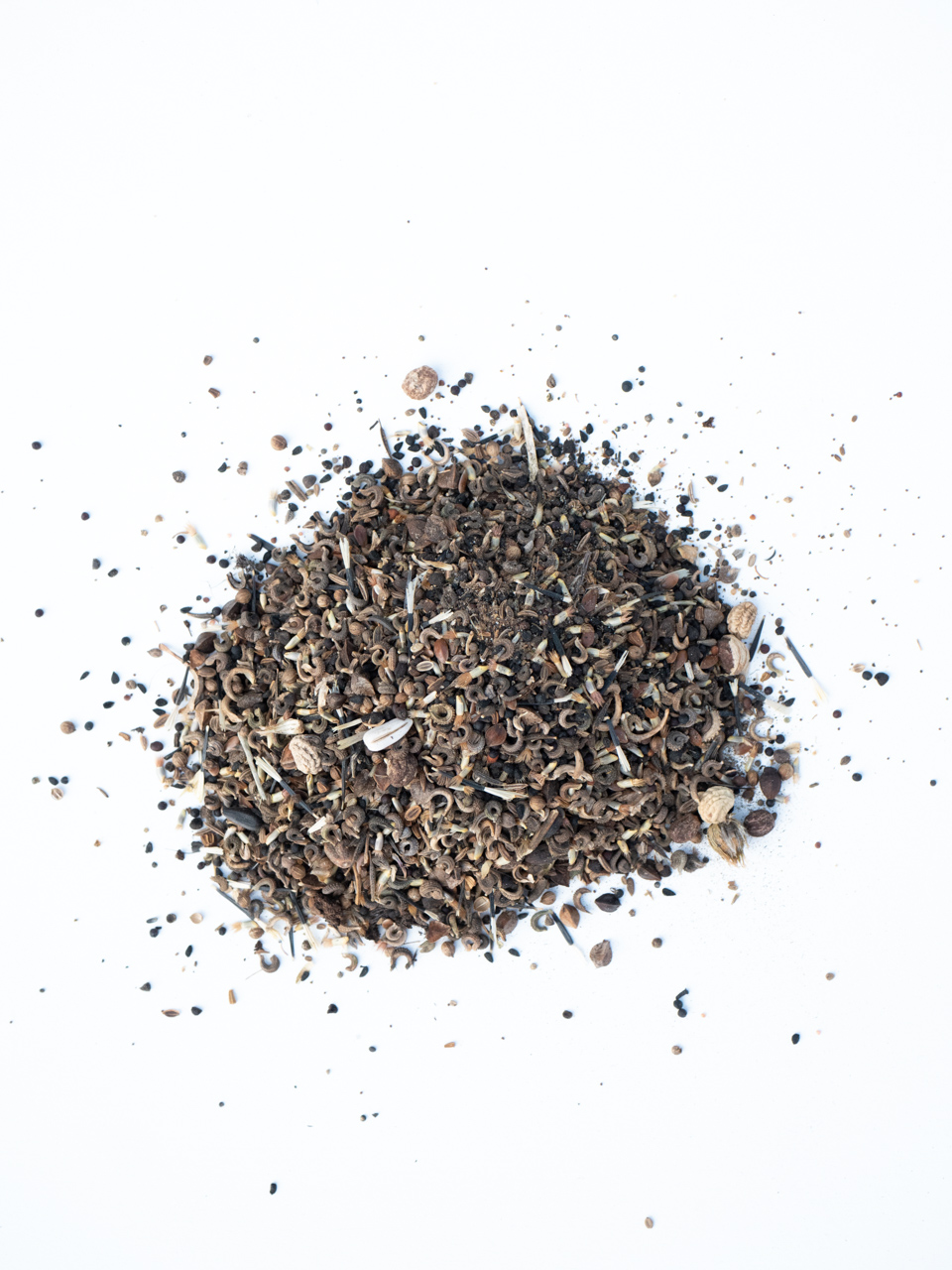
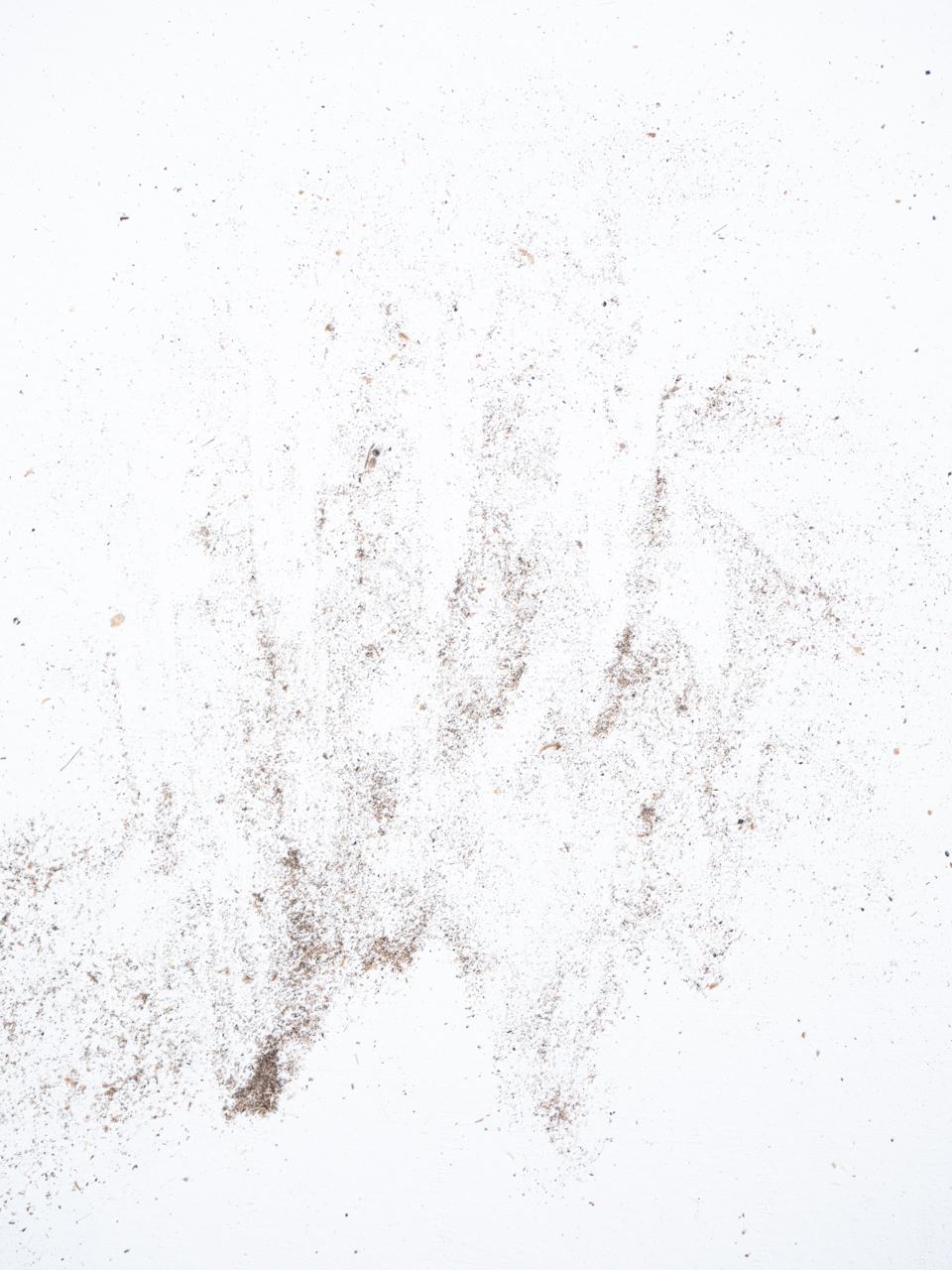
 Home
Information
Archive
Home
Information
Archive